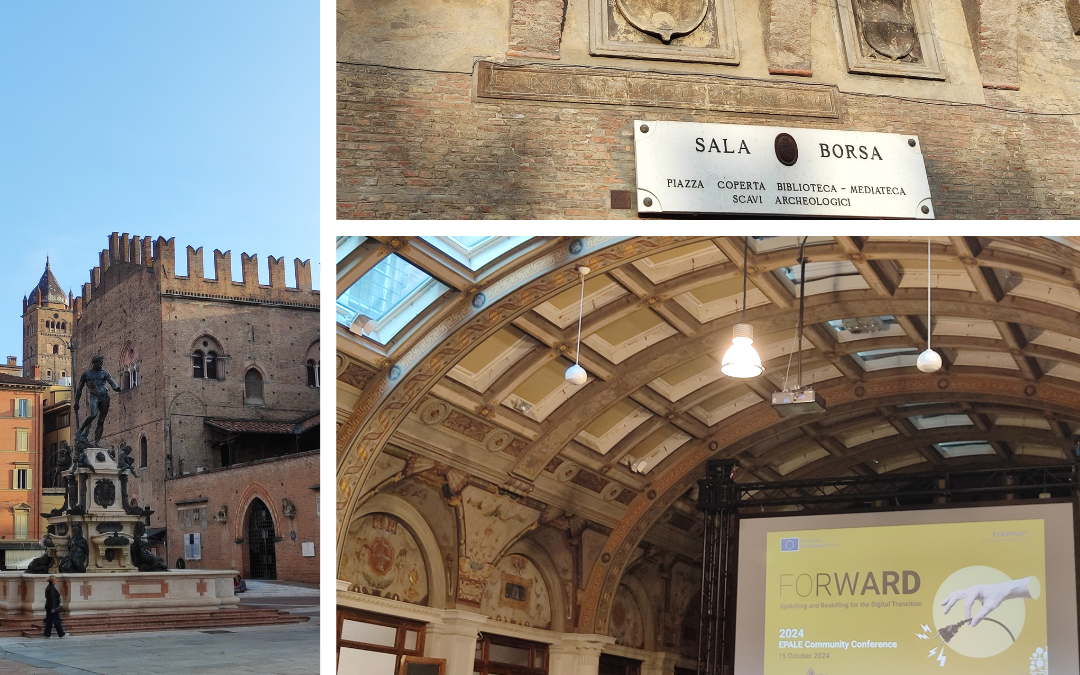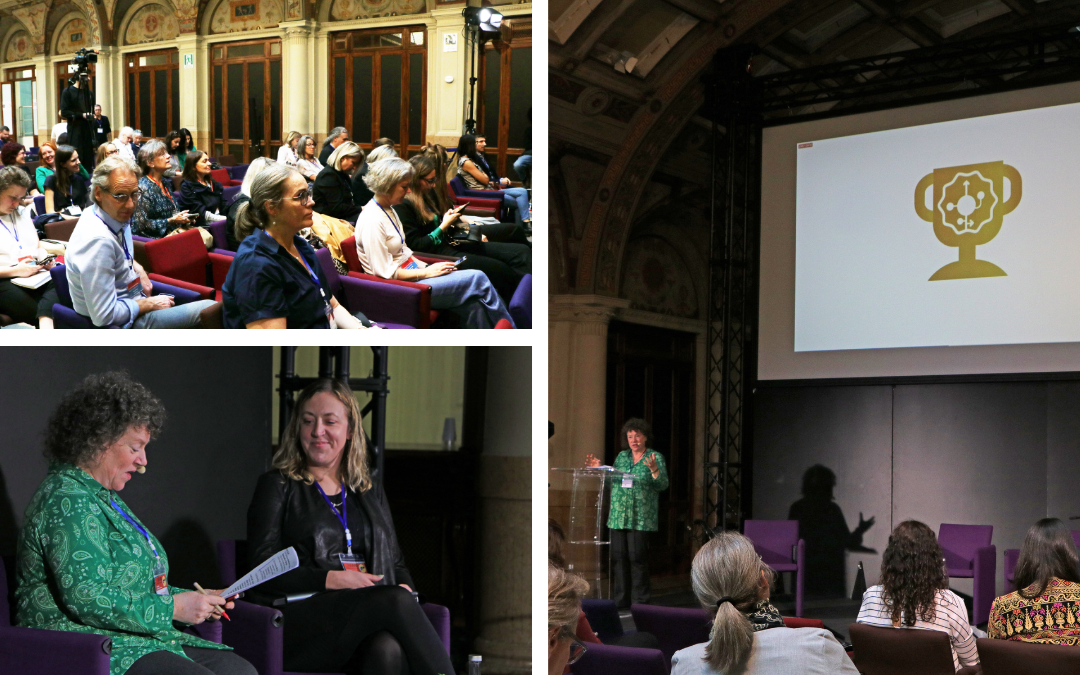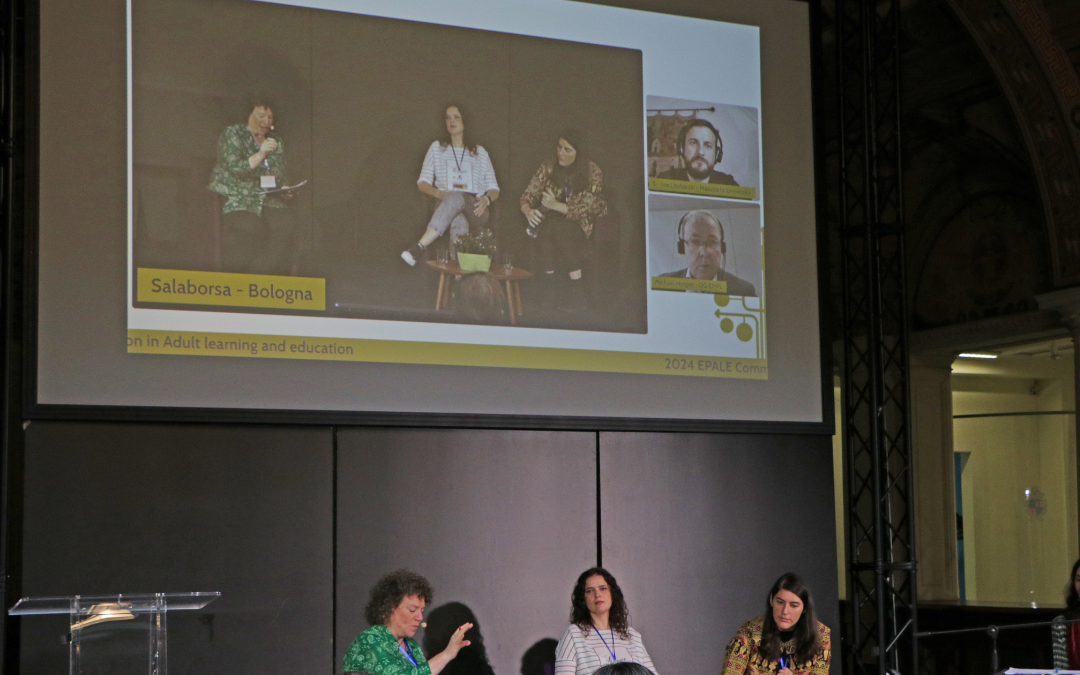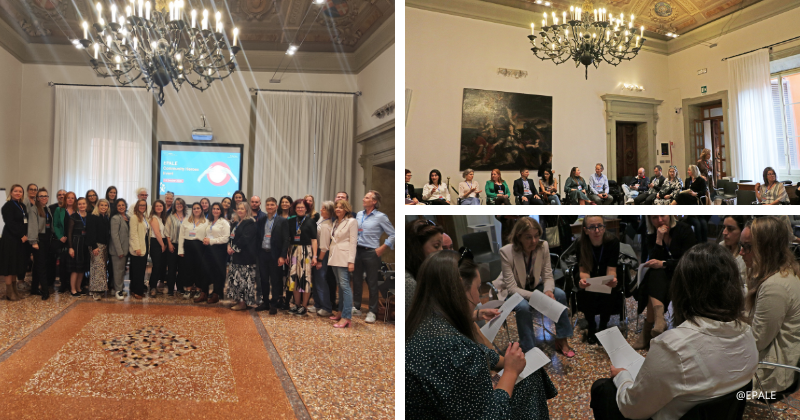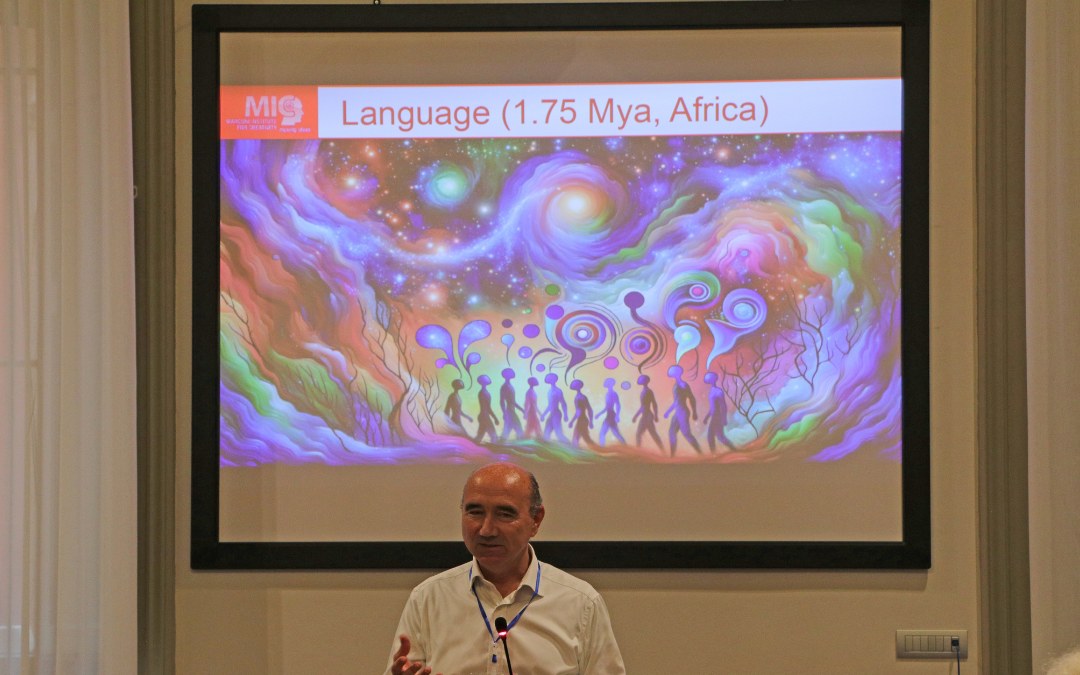The event was also unique due to its hybrid format. On the first day, the invited audience gathered in the beautiful setting of the Salaborsa Library. I was honoured to be a part of it.
The following two days of the conference were held online, which proved to be an excellent approach, as it allowed for an engaging debate to unfold simultaneously in the chatroom.
Forward. Adult Learning: Igniting Change, Shaping Tomorrow
ALE undoubtedly shapes our future. Programme and activity creators are never short on ideas for connecting with vulnerable groups and enhancing adults’ competencies in areas where they may not initially see the need. The theme of the first day was Upskilling and Reskilling for the Digital Transition.
“Who sets the rules in the digital world, and how does this impact our privacy?” asked the event’s moderator, Tamsin Rose. The morning’s speakers delved into finding an answer, with a lively exchange of ideas coming from both the audience in the hall and those attending online.
Who holds power in the digital world?
The keynote speaker, Jillian C. York, an American activist and expert on freedom of expression online, digital rights and surveillance, posed a question: how, if at all, can the digital transition be guided? She discussed the complex relationship between freedom of speech and the right to expression. Some audience members pointed out issues of excessive surveillance. They shared ways of bypassing technology to secure their right to privacy.
A representative from the Dutch NSS proposed educating people on culturally acceptable practices in the digital realm.
The final part of the session in the hall was as engaging in content as it was in organisation. Safa Ghnaim, an educator and expert in instructional design and curriculum development, and Gema Parrado León, a seasoned adult educator, joined Tamsin Rose on stage. Joe Litobarski, a researcher at Maastricht University, and Michael Horgan, a representative of the Directorate-General for Employment, Social Affairs and Inclusion (DG EMPL) at the European Commission, contributed to the discussion via Zoom.
Fear of technology is nothing new
The audience in the hall was particularly captivated by Gema’s approaches to strengthening digital skills in rural Spain. In fact, she confirmed what has long been known in the field: bringing skills directly to the community and fostering positive word-of-mouth is a recipe for success. Her work also underscored a second truth: when we learn, progress is rarely confined to a single area. Joe Litobarski, on the other hand, delved into the intricacies of both ICT and artificial intelligence, helping to dispel fears surrounding technology. Adult educators in attendance gleaned an important lesson between the lines: they must adapt their own digital skills, as a significant gap between the knowledge of participants and teachers can have long-term negative consequences. “It’s important to talk about this with students so our brains don’t turn to mush,” Litobarski quipped humorously.
Team building on innovative learning approaches
In the afternoon, we, the invited EPALE Community Heroes, spent time off-camera. In the beautiful Sala dello Zodiaco at the Palazzo Malvezzi, we attended presentations on innovative approaches to enhancing cultural skills and an engaging lecture on artificial intelligence.
Earlier that morning, the city representative had mentioned Bologna’s intriguing migration policy in her welcoming address. Every newborn, regardless of origin, is symbolically embraced into the municipal community. This spirit of coexistence between locals and migrants is palpable throughout the ancient city.
Creative capital and artificial intelligence
Giovanni Emanuele Corazza, an engineer with a PhD in sociology, encouraged us to tap into our creative potential boldly. In his presentation on the history of technology, he illustrated how humanity has always harnessed cognitive abilities for progress. He also highlighted the ethical issues, which are undeniably crucial when dealing with artificial intelligence.
The journey to Bologna as a skills-building experience
Informal learning often has the unintended effect of strengthening us with various interconnected (or unconnected) skills. This is precisely how I view my journey to Bologna. Planning the trip, booking accommodation and navigating unfamiliar environments boosted my confidence in handling new situations. Meeting new people, engaging in formal and non-formal communication, and socialising have enriched me. Altogether, it was an unforgettable experience. Realising the importance of ALE further strengthened my commitment to working in this field.
Ana Peklenik (ana.peklenik@acs.si), SIAE

